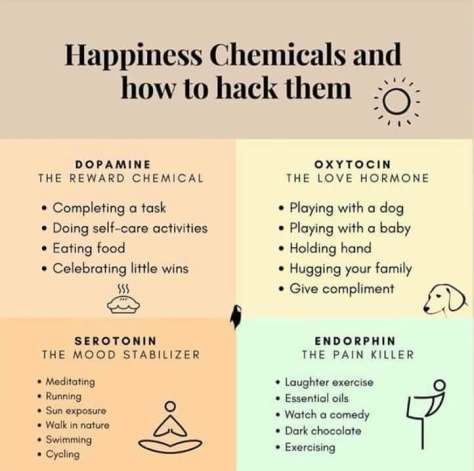 An attitude of optimism is a revolutionary act. It has the power—through imagination—to introduce miraculous transformation and change. Just as a journey of a thousand miles begins with a single step, a journey into our best possible reality begins with a single question: “How good can it get?”
An attitude of optimism is a revolutionary act. It has the power—through imagination—to introduce miraculous transformation and change. Just as a journey of a thousand miles begins with a single step, a journey into our best possible reality begins with a single question: “How good can it get?”Optimism is a rebellious act because this attitude often flies in the face of adopting an attitude of fearfulness that is typically encouraged by our governments and societies. Optimism is perhaps the most rebellious when adopted even when situations truly are looking genuinely scary, and clear and present danger has arrived.
Optimism as Ultimate Survival Skill
How is it possible that an attitude of optimism might be the ultimate survival skill? Author Jeff Bollow tells us that yes, that's exactly what optimism is. He adds that when you start to deliberately improve your optimism skills, the rewards will be phenomenal. There is a logic to this, since where you are today and where you want to be are literally in two different worlds–and at each decision point, every single day, we are either resisting or supporting some future unknown. How we greet the unknown has everything to do with what actually happens next in our lives.
We see some evidence of optimism being an ultimate survival skill, since optimists improved quality of life, while also tending to live longer. A study in 2004 of nearly 1,000 people found that optimists have a 23% reduction of the risk of heart disease, and a 55% reduction in all causes of death. A meta analysis of 15 studies including 229,391 individuals found that optimism was associated with lower risk of cardiovascular events, and pessimism was associated with higher risk of cardiovascular events, on par with other well-established risk factors.
How Much of an Optimist Are You?
I began a talk about the Mandela Effect by acknowledging the importance of attitude for exploration–whether we're going back in time to join Charles Darwin on his voyage aboard his ship the Beagle, or welcoming reality shifts, Mandela Effects and quantum jumps into our lives. Those intrepid adventurers who truly love the unknown are adopting an attitude of greeting the unknown future with open arms. Another word for this attitude is Optimism.
You can get a sense of where you naturally tend to be on the optimism scale that goes from maximum resistance to maximum support of the unknown:
- Cynicism — “Everything is bad, doomed, and untrustworthy.”
- Pessimism — “Things are likely to have negative results.”
- Realism — “Things just are what they are.”
- Optimism — “Things are likely to have positive results.”
- Idealism — “Everything will work out brilliantly.”
Increase Happiness Chemicals
 So now that we are seeing increasing evidence to suggest that a mindset of optimism is associated with lower cardiovascular risk, it's possible to realize that encouraging optimism can play an essential role in our health and wellbeing.
So now that we are seeing increasing evidence to suggest that a mindset of optimism is associated with lower cardiovascular risk, it's possible to realize that encouraging optimism can play an essential role in our health and wellbeing.It's possible to move to a position of greater optimism, by increasing such happiness chemicals as: Dopamine, Oxytocin, Serotin, and Endorphin. We can feel pleased with completing tasks and celebrating little things with Dopamine; we can be playful, kind and loving to enjoy Oxytocin; we can meditate and enjoy nature to benefit from Serotonin, and we can laugh or exercise to release pain-inhibiting Endorphins.
For best results, I recommend that we remind one another and ourselves to initiate and maintain positive onward-and-upward intentional guidance by asking, “How good can it get?” every day and in every situation.
. . . . . . . . . . . . . . .
REFERENCES:
Bollow, Jeff. “Why Optimism is the Ultimate Survival Skill.” https://thephenomenalexperience.com/content/why-optimism-is-the-ultimate-survival-skill
Giltay, Erik J., Johanna M. Geleijnse, Frans G. Zitman, Tiny Hoekstra, and Evert G. Schouten. “Dispositional optimism and all-cause and cardiovascular mortality ina prospective cohort of elderly Dutch men and women.” Archives of general psychiatry 61, no. 11 (2004): 1126-1135.
Rozanski, Alan, Chirag Bavishi, Laura D. Kubzansky, and Randy Cohen. “Association of optimism with cardiovascular events and all-cause mortality: a systematic review and meta-analysis.” JAMA Network Open 2, no. 9 (2019): e1912200-e1912200.
You can watch the companion video to this blog here:
___________________________
 Cynthia Sue Larson is the best-selling author of six books, including Quantum Jumps. Cynthia has a degree in physics from UC Berkeley, an MBA degree, a Doctor of Divinity, and a second degree black belt in Kuk Sool Won. Cynthia is the founder of RealityShifters, and the International Mandela Effect Conference. Cynthia hosts “Living the Quantum Dream” on the DreamVisions7 radio network, and has been featured in numerous shows including Gaia, the History Channel, Coast to Coast AM, One World with Deepak Chopra, and BBC. Cynthia reminds us to ask in every situation, “How good can it get?” Subscribe to her free monthly ezine at:
Cynthia Sue Larson is the best-selling author of six books, including Quantum Jumps. Cynthia has a degree in physics from UC Berkeley, an MBA degree, a Doctor of Divinity, and a second degree black belt in Kuk Sool Won. Cynthia is the founder of RealityShifters, and the International Mandela Effect Conference. Cynthia hosts “Living the Quantum Dream” on the DreamVisions7 radio network, and has been featured in numerous shows including Gaia, the History Channel, Coast to Coast AM, One World with Deepak Chopra, and BBC. Cynthia reminds us to ask in every situation, “How good can it get?” Subscribe to her free monthly ezine at:













![Everything You Ever Wanted to Know About 9/11 Conspiracy Theory in Under 5 Minutes [VIDEO] | by James Corbett](https://consciouslifenews.com/wp-content/uploads/2018/09/911-a-conspiracy-theory-120x86.jpg)
